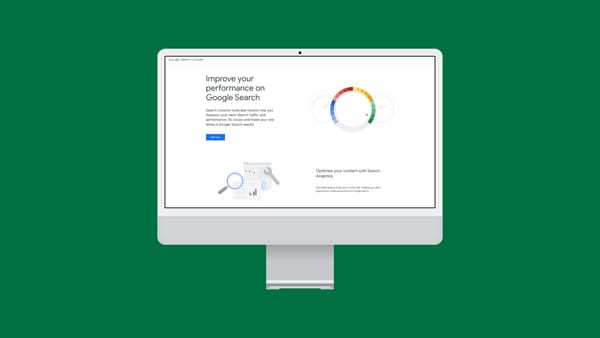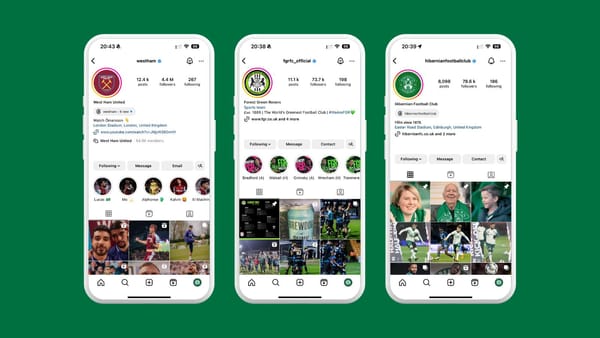Building and measuring trust on social media, and limiting brand damage
In this issue, find out how to build and measure trust for your team through social media, the recent changes to X and Threads that are worth keeping an eye on, why you may want to keep an eye on players' social media, and how to join a growing sports media community online.
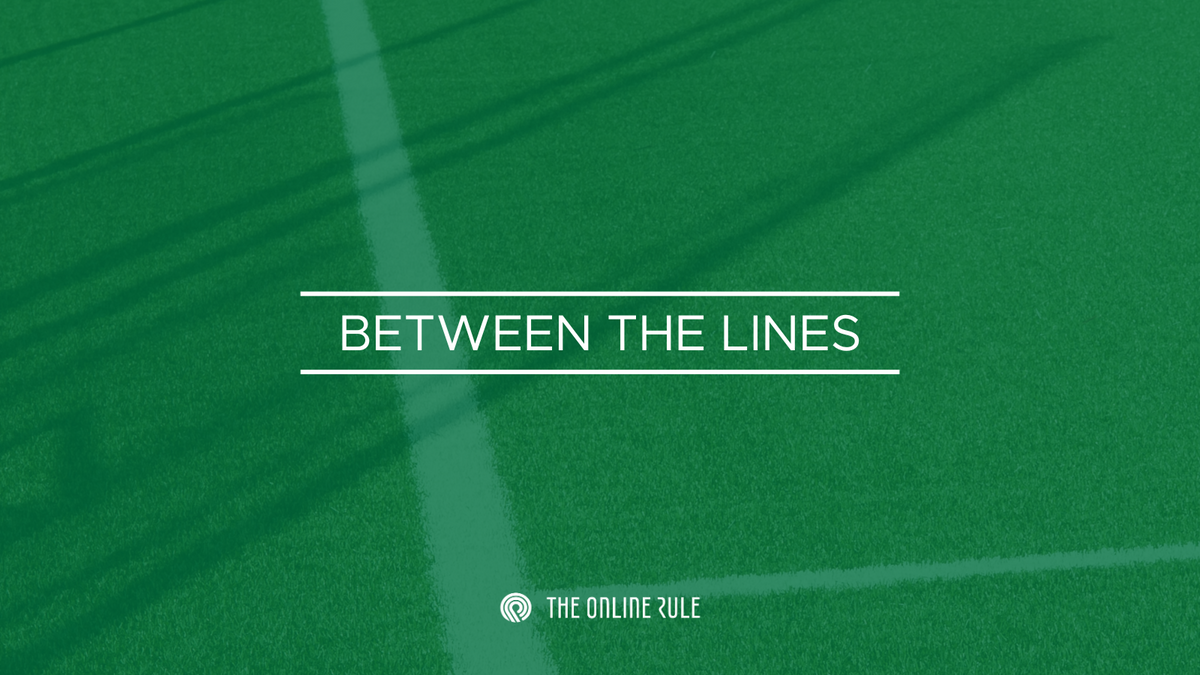
Trust in me
In a recent paper published in the Journal of Digital & Social Media Marketing (no, wait, come back) I came across a great piece called Marketers should use social media to build trust in their brand, but they must know how to measure it.
In it, the authors put across their argument for building trust at scale with social media. In a nutshell, how do we get a new generation of online users to care about our brand? By extension, this includes sports teams.
They cite the Deloitte Digital HX TrustID model, which says there are four main drivers of trust:
- Humanity
- Transparency
- Capability
- Reliability
If we want people to like and engage with us online, we need to demonstrate each one across our social media content. We have to care for our users, openly share information in plain language, meet their expectations, and deliver what we promise. But how do we go about gaining their trust?
Through your day-to-day content
Firstly, we need to be helpful, inspiring, or entertaining on a daily basis. This is a constant demand of social teams - how do we get people to stop scrolling and pay attention to what we're saying?
This is our day-to-day content. The updates, the videos, the insights. They meet our audience's needs and interests.
Another international break out of the way. 🙏
— Watford Football Club (@WatfordFC) October 18, 2023
Here are some of our favourite player pics! 📸
Once we've done this, we drop our asks, adverts, CTAs, and the things we want them to 'take action' on. This is tickets, merchandise sales, or hospitality bookings.
We're back home this weekend, and we want YOU there! 🫵
— West Ham United Women (@westhamwomen) October 18, 2023
Click below to join us at the Chigwell Construction Stadium! 🏟️
The trick is balancing this. Ideally it's 80/20, with the 20 representing our 'asks' of the audience.
Through your interactions
Secondly, social should be a two-way street (I bang on about this a lot so it's great to see some actually clever people back it up). We can't build trust unless we're talking to people and interacting with them.
"Brands live and die by the trust of their community, and there is no better way to gain their trust than to make them know you care, you listen and you reply."
If you're trying to demonstrate your values - and most clubs stick community in there as one of them - there's no better way than a bit of back and forth with fans.
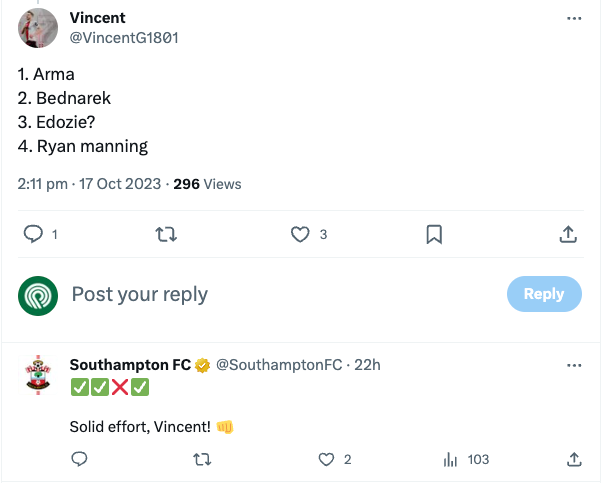
Through living our values
It's not enough to stick a pride flag on something and call it a day. If we're going to show support for communities or causes, we need to actually get involved and demonstrate these values all year round.
If we're not consistent in our beliefs and support for causes, people will know. You only have to take a look at the ongoing debate around Jordan Henderson's move to Saudi Arabia to see this in action.
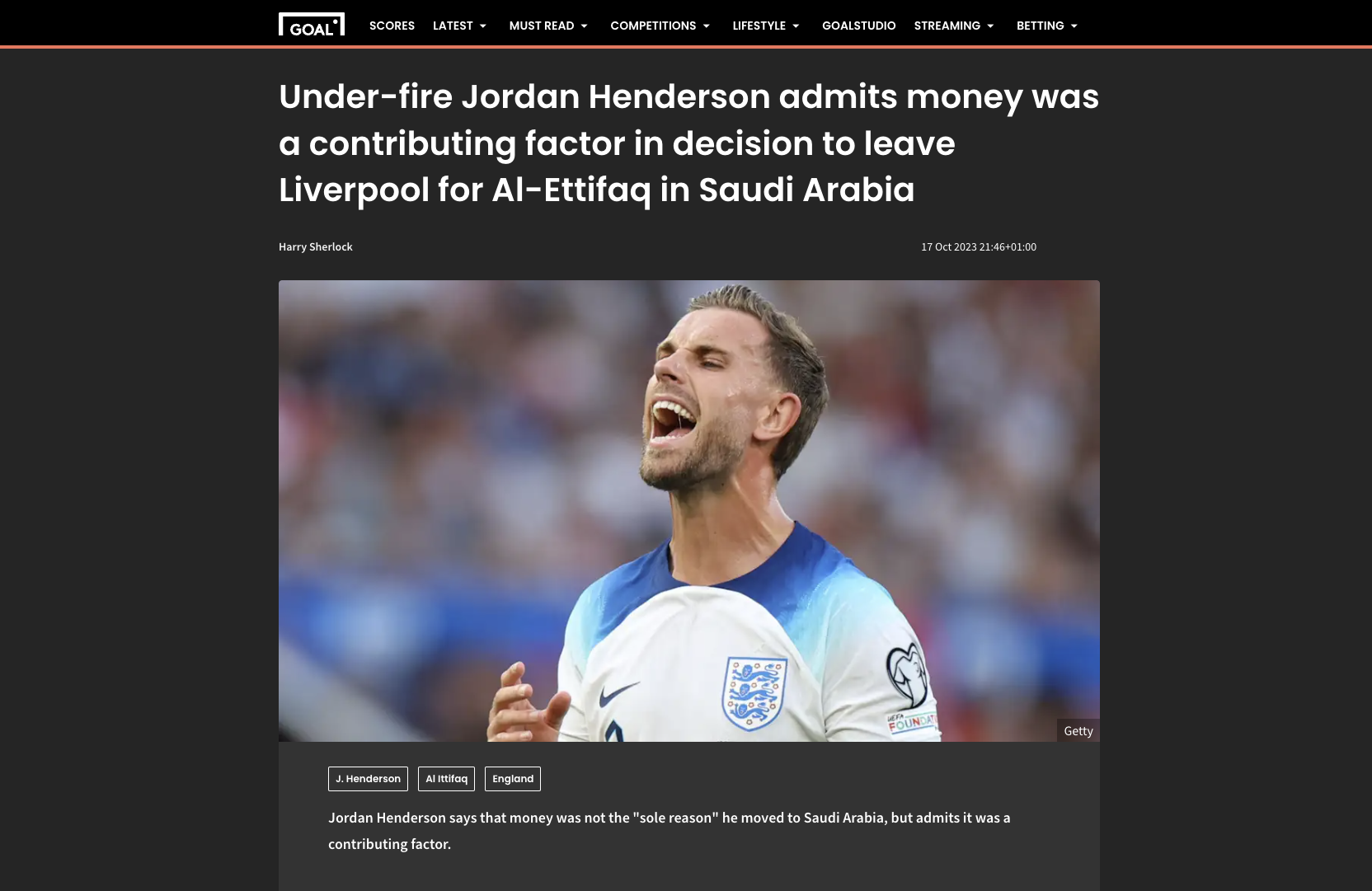
Contrast the off-pitch approach taken between Cristiano Ronaldo and Lionel Messi (who SportsPro call the world's most marketable athlete). Whereas Ronaldo seems to turn up promoting all sorts of brands, Messi makes sure to partner with global companies and is very involved in how he's portrayed in campaigns.
Through our close contacts
Players and employees can be a great asset in building trust. People are much more interesting than brands; we respond more to individuals than faceless organisations.
Exeter City's Demetri Mitchell is a great example of this. He runs his own engaging account on X, constantly replying to fans and running quizzes and competitions. He's open about being a Manchester United fan and often talks about their games (he spent time in their academy) and creates authentic content the club aren't in a position to do.
Yeah if the club wanted me to chill I’d stop, that’s who keep the heating on at the end of the day 😅 winters coming https://t.co/wnn6amNhE2
— Demetri Mitchell (@demetrimitche11) September 28, 2023
Employee advocacy isn't a new thing in marketing, but clubs should look to harness the power of their players more to increase the trust in them.
Measuring trust
There's no one single measure of trust. Instead we need to look at a few things to see how well thought of our clubs or brands are.
The following 4 ways show how we measure humanity, transparency, capability, and reliability.
- Follower growth rate. Humanity drives loyalty, and loyalty can be looked at as a follower count (as people can unfollow you). If your following is growing, it's a basic sign that people trust what you're sharing.
- Shares, sentiment, website bounce rate, traffic from advocacy content vs others. In this case, we're using transparency to drive brand advocacy. While shares are straight forward to look at, other measurements are a bit tricker. Sentiment is the percentage of positive comments you're getting on your content - there are free tools like Social Buzz to help you analyse this, but most of them are paid for. You can also do a general sense check. You can also use Google Analytics' acquisition reports and UTM tracking to see what content is performing best on your website and figure out if your players or employees are driving better quality traffic than the club accounts.
- Post reach, customer care metrics. To demonstrate capability we need to generate satisfaction. This involves looking at how many people we're reaching with our content as a percentage of our following, but also the time it takes us to enter into those responses and conversations with followers. The quicker the better.
- Click-through rate, conversion rate. Reliability is measured through conversions. Customers reward reliability with money, and are more likely to spend with brands they trust than ones they don't. If you're getting a lot of traffic to your website from your social posts (again, acquisition reports are your friend here), that's a sign people are interested.
Was this useful? If you found the explanations above interesting and easy to understand, please let me know and I'll start building more insights like these into future newsletters.
Pay to play
Plenty of organisations are carrying the news that X (formerly Twitter) is going to start charging new users $1 a year to use the platform.
They released an official statement saying:
“Starting today, we’re testing a new program in New Zealand and the Philippines, where new, unverified accounts will be required to sign up for a $1 annual subscription to be able to post, and interact with other posts. Within this test, existing users are not affected.”
At the minute, only users in those two countries are affected. Don't be surprised to see this roll-out worldwide over time. Do you have a backup plan if X disappears?
Oh look, Threads
Speaking of exit plans, Threads is continuing to slowly add features they should have had at launch.
Most recently, they've added voice posts and the ability to edit your posts within five minutes of sharing them. They're also improving the algorithm so that you see more useful stuff in your timeline if you don't just want to see the accounts you're following already.
Other tests that are going on include the ability to send DMs, as well as publish branded content (in a similar way to Instagram). This could mean that it won't be too long until we start seeing ads over there. They're also testing polls, in-stream GIFs, and having trending topics.
Apparently, Threads was also the most downloaded app of Q3 in 2023.
Personally, until they manage to find a way to integrate it with Meta Business Suite and allow people to schedule, they won't see much uptake among teams.
The Online Rule is also on Threads, kinda.
Damage limitation
Back in September, the BBC introduced a new social media policy for BBC flagship presenters. It follows rows over Gary Linekar's use of his online platforms after he compared the UK government's asylum policy to 1930s Germany earlier this year.
While these are issues and debates that aren't likely to be at the forefront of clubs' minds, it did make me wonder whether many have plans in place to deal with these comments if they arise.
Are you covered if a player publishes their own views on political situations online? Or does something to damage your reputation?
Nice have recently suspended Youcef Atal for his social media post on the Israel-Hamas war, and Anwar El Ghazi has also been suspended by Mainz for a post about the conflict.
While these are likely covered by wider conduct policies, having some guidance for players over what is and isn't appropriate online can't be a bad thing.
Join the community
Finally, if you'd love to discuss sports marketing with likeminded people from around the world, Stenhousemuir's Ian Fitzpatrick has created a Discord server that you might enjoy.
Channels cover photography, graphic production, volunteer work, and general conversations around the game and peoples' roles. The group started among staff at Scottish clubs, but has grown and branched out past that recently.
If you want to join, this link will work until 25 October: https://discord.gg/ejrXBNSD.
Don't forget to introduce yourself!


